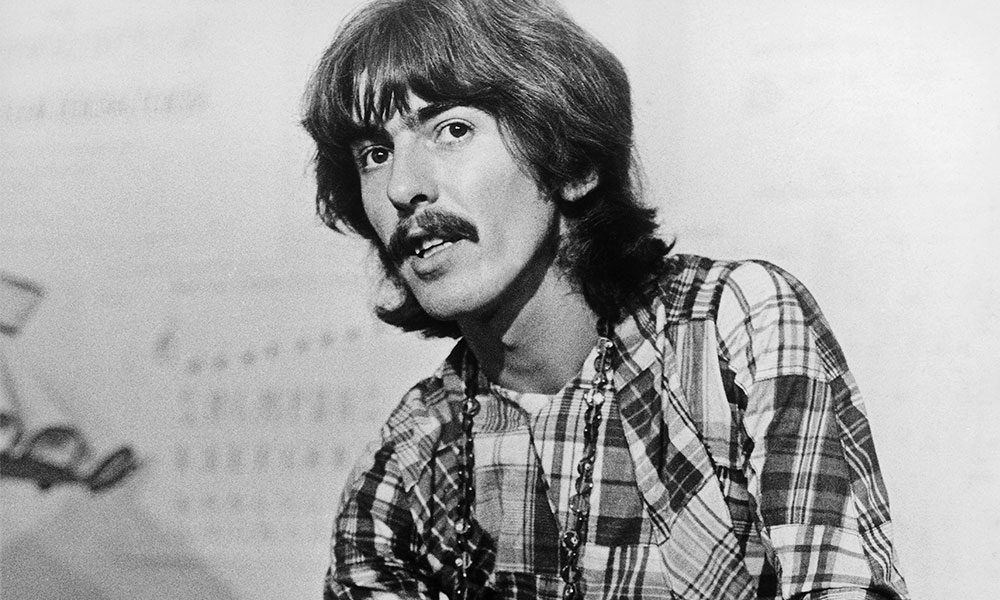George Harrison was ready to take on the world when he left The Beatles, and for a while, he was the greatest star that the Liverpudlian group had ever generated. George Harrison’s solo album All Things Must Pass proved what he already knew to be true—that he was a talented composer.
His first song really appeared with John Lennon and Paul McCartney in 1966, and the latter’s stomach turned upon hearing it. From the moment he penned and recorded “Don’t Bother Me,” a song that eventually featured on the Fab Four’s album, With The Beatles, George Harrison’s musical contributions grew.
The song was written by Harrison while he was sick in bed, and although it is not recognized as a classic song today, Harrison previously explained its significance as follows: “At least it showed me that all I needed to do was keep on writing, and then maybe eventually I would write something good.”
Harrison’s role in The Beatles was once succinctly described by the great composer himself, Bob Dylan, when he remarked, “George got stuck with being the Beatle that had to fight to get songs on records because of Lennon and McCartney. Well, who wouldn’t get stuck?” It was during an interview in 2007.
It’s a notion that is difficult to contest, and it must have been oppressive to be seated between two musicians as influential as John and Paul. Dylan said, “If George had had his own group and was writing his own songs back then, he’d have been probably just as big as anybody.”It’s a notion that is difficult to contest, and it must have been oppressive to be seated between two musicians as influential as John and Paul.
However, one of these songs would fundamentally alter The Beatles and guarantee the end of the Lennon-McCartney era. The song in dispute was “Taxman,” which was released in 1966. “Taxman,” the first song on The Beatles’ album Revolver, represented not just Harrison’s use of his personal experiences as a source of inspiration but also the first time he truly rose to the standards established by his comrades.
Although the anti-socialist content of the song may not have fit the tone as well as others, it is still a fan favorite. Lyrically, it was abrupt and sharp yet musically, it was deep and complex. Harrison said, “I had discovered I was paying a huge amount of money to the taxman. You are so happy that you’ve finally started earning money – and then you find out about tax.”
He added, “In those days we paid 19 shillings and sixpence [96p] out of every pound, and with supertax and surtax and tax-tax it was ridiculous – a heavy penalty to pay for making money. That was a big turn-off for Britain. Anybody who ever made any money moved to America or somewhere else.”
They also did. Targeted by the government at the time, a large number of British rock singers left the country in search of nations with laxer tax regulations. However, it was the group that actually felt the effects of change, not the outside world. “Taxman” demonstrated how Harrison had surpassed his friends in songwriting, something Lennon was all too aware of.
David Sheff was told by John Lennon in 1980, “I remember the day he called to ask for help on ‘Taxman’, one of his first songs, I threw in a few one-liners to help the song along, because that’s what he asked for. He came to me because he couldn’t go to Paul, because Paul wouldn’t have helped him at that period. I didn’t want to do it. I thought, Oh, no, don’t tell me I have to work on George’s stuff. It’s enough doing my own and Paul’s.”
John Lennon was delighted to assist a buddy despite this, though: “But because I loved him and I didn’t want to hurt him when he called that afternoon and said, ‘Will you help me with this song?’ I just sort of bit my tongue and said OK. It had been John and Paul for so long, he’d been left out because he hadn’t been a songwriter up until then.”
‘Taxman’ altered everything, and everything changed again. Harrison’s songs were now regarded more seriously, if not seriously enough. He was also given more freedom to experiment and compose his own music. The guitarist would go on an incredible run of compositions, contributing to some of The Beatles’ best songs, including “While My Guitar Gently Weeps” and “Here Comes The Sun,” to mention just a couple.
The George Harrison song “Taxman,” which eternally altered The Beatles, served as the catalyst.

